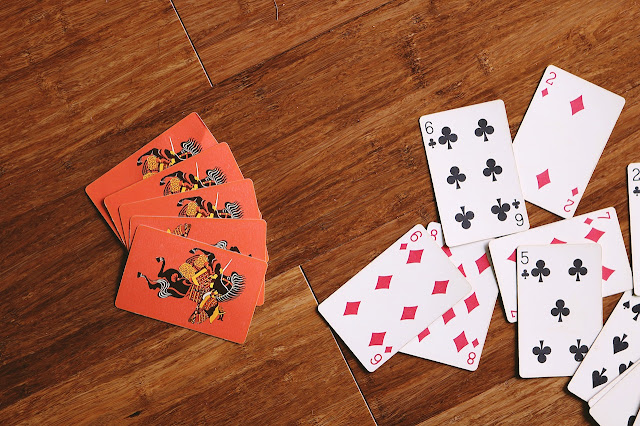Poker, often referred to as the "thinking person's game," is a card game that combines elements of skill, strategy, psychology, and a dash of luck. It has been a favorite pastime for generations, captivating the minds of players from smoky backrooms to glamorous casinos. In this article, we will delve into the fascinating world of poker, exploring its history, fundamental principles, and the strategic nuances that separate novices from seasoned pros.
The Origins of Poker
Poker's precise origins are shrouded in mystery, with various theories attributing its birth to different times and places. Some claim it evolved from the Persian game "As Nas," while others insist it was inspired by the French game "Poque." Regardless of its origin, poker gained immense popularity in the United States during the 19th century, evolving into the diverse and complex game we know today.
The Basics
At its core, poker is a game of incomplete information. Each player receives a combination of face-down (hole) and face-up (community) cards, and the objective is to form the best five-card hand. The hands are ranked, with the Royal Flush (A, K, Q, J, 10 of the same suit) being the highest and a high card being the lowest.
Key Gameplay Variants:
Texas Hold'em: The most popular variant, where players receive two hole cards and five community cards, with various betting rounds.
Omaha: Similar to Texas Hold'em but with four hole cards, and players must use exactly two of them in combination with three community cards.
Seven-Card Stud: Players receive seven cards, three face-down and four face-up, in a series of betting rounds.
Five-Card Draw: Each player is dealt five cards, and they have the opportunity to exchange some or all of their cards in an attempt to improve their hand.
The Power of Strategy
Poker is not just a game of luck; it's a game of skill, strategy, and psychology. Here are some fundamental strategic principles:
Starting Hand Selection: Knowing which hands to play and which to fold is crucial. A strong starting hand can set you up for success, while a weak one can lead to losses. Experienced players have a keen understanding of hand rankings and position at the table, helping them make informed decisions.
Position: Your seat at the table matters. Players in later positions have the advantage of seeing their opponents' actions before making their own decisions. This information is valuable for making strategic moves.
Reading Opponents: Successful poker players are skilled at reading their opponents' behavior, also known as "tells." This involves observing body language, betting patterns, and tendencies to make informed decisions.
Bluffing: Bluffing is a key element of poker game. It involves making your opponents believe you have a stronger hand than you actually do, forcing them to fold. However, timing and subtlety are crucial, as a poorly executed bluff can backfire.
Bankroll Management: Managing your chips is vital. You should never bet more than you can afford to lose, and having a clear budget for your poker play is essential to avoid financial troubles.
Psychology in Poker
Understanding human psychology is as important as knowing the rules and strategies of poker. Emotions can play a significant role in decision-making. Key psychological aspects include:
Tilt Control: Tilt is a state of emotional frustration that can lead to reckless decisions. Experienced players know how to manage their emotions and stay focused.
Table Image: Your perceived image at the table can be an asset or a liability. If you consistently play tight and aggressive, opponents may be more likely to fold to your bets.
Pot Odds and Expected Value: Rational decision-making based on mathematical probabilities is essential. Knowing when to call, raise, or fold based on pot odds and expected value can greatly improve your results.
Conclusion
Poker is a multifaceted game that offers endless opportunities for learning and mastery. It combines elements of mathematics, psychology, strategy, and intuition into a thrilling pastime that has captured the imaginations of players worldwide. Whether you're playing with friends at home or competing in high-stakes tournaments, poker is a game that rewards skill, discipline, and a deep understanding of the human psyche. So, as you sit down at the poker table, remember that it's not just about the cards you're dealt but how you play them that truly matters.





0 Comments